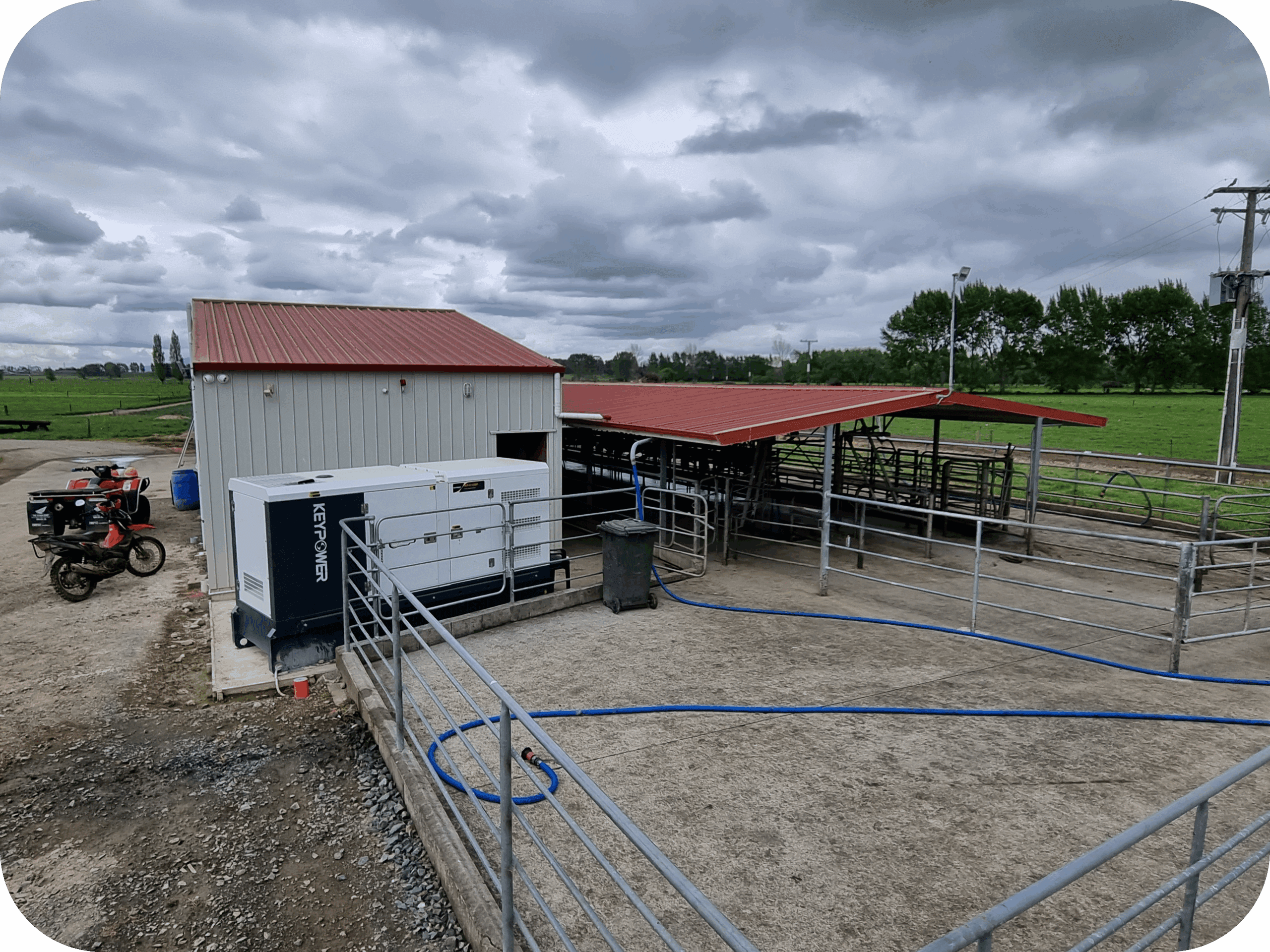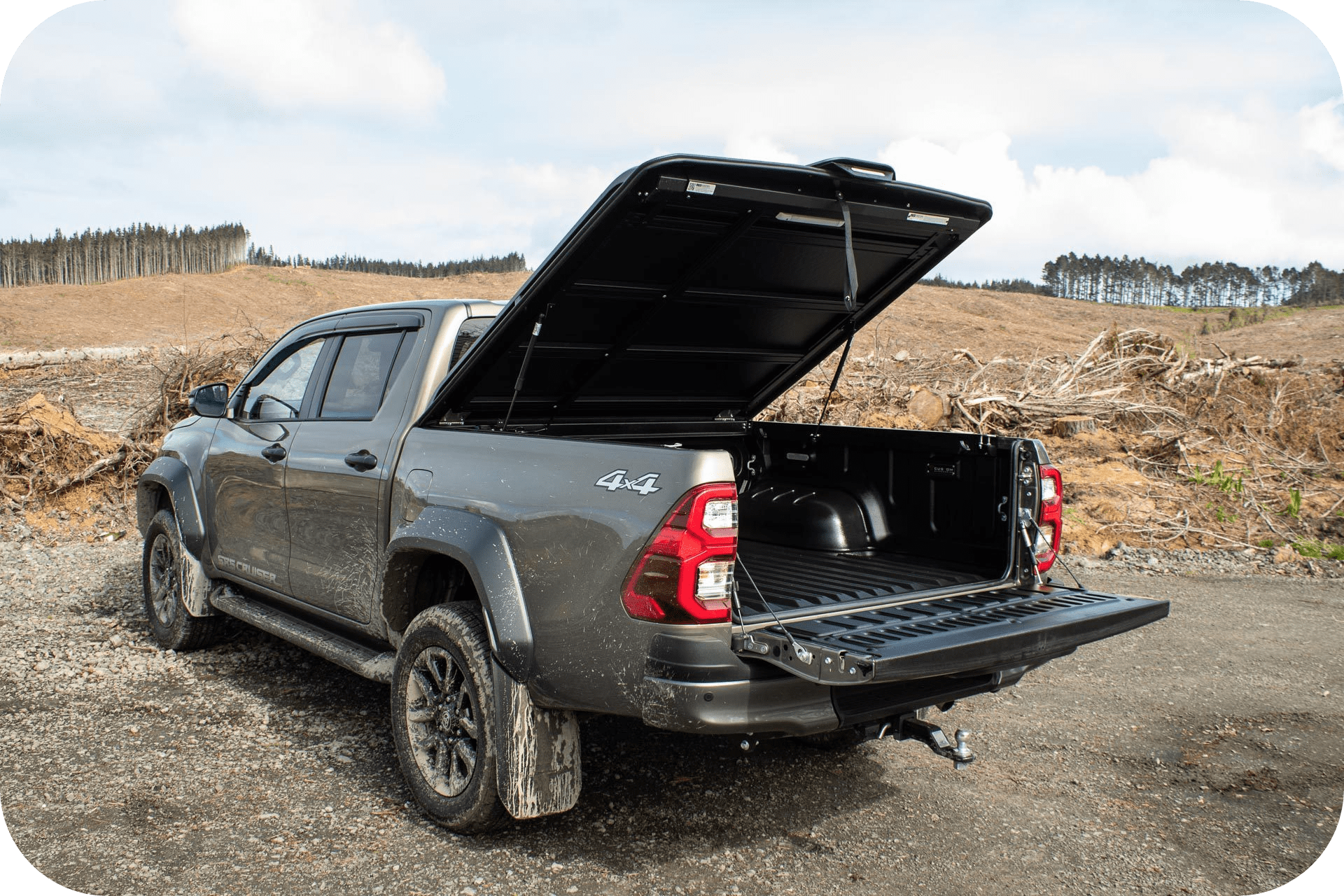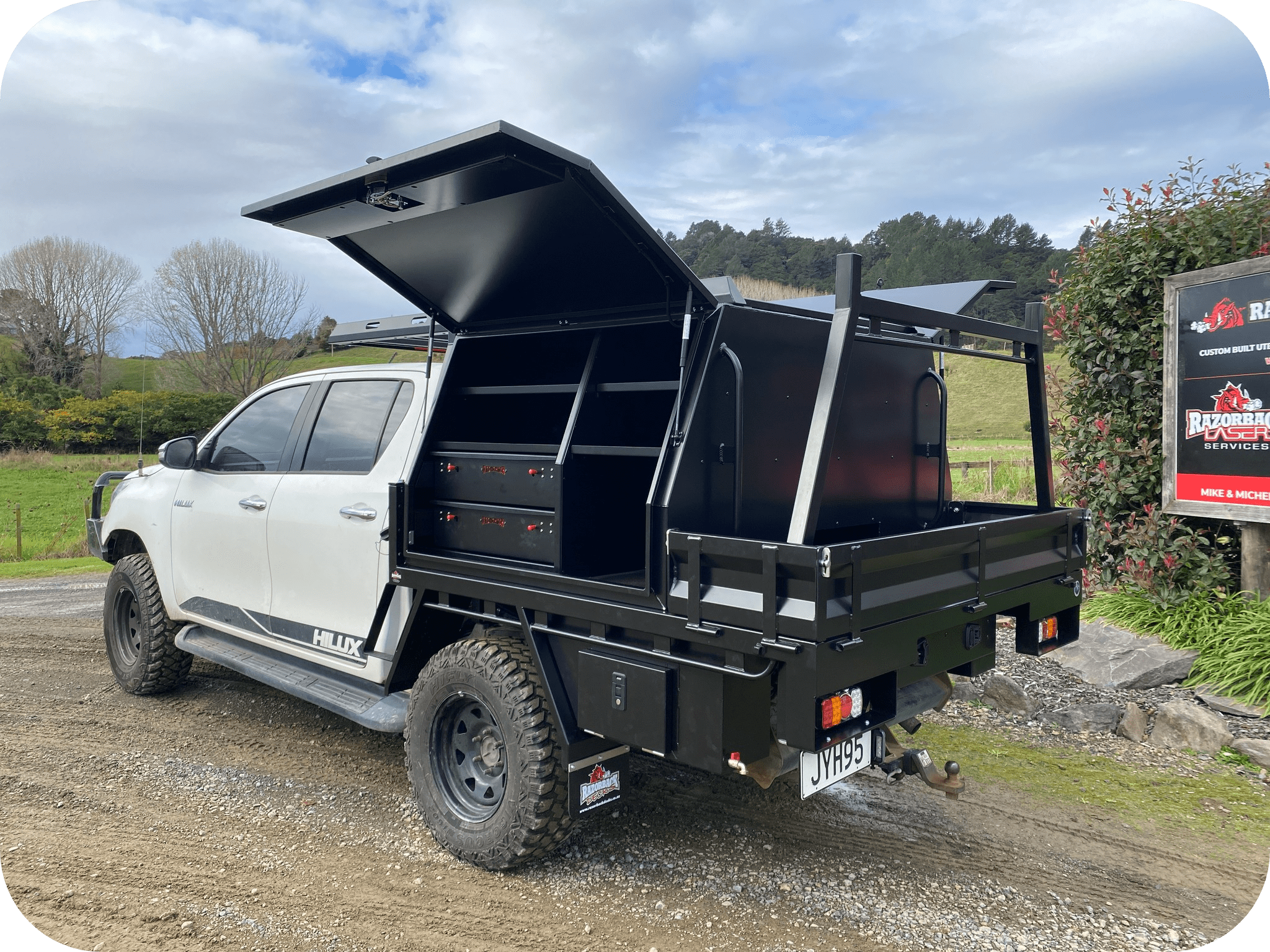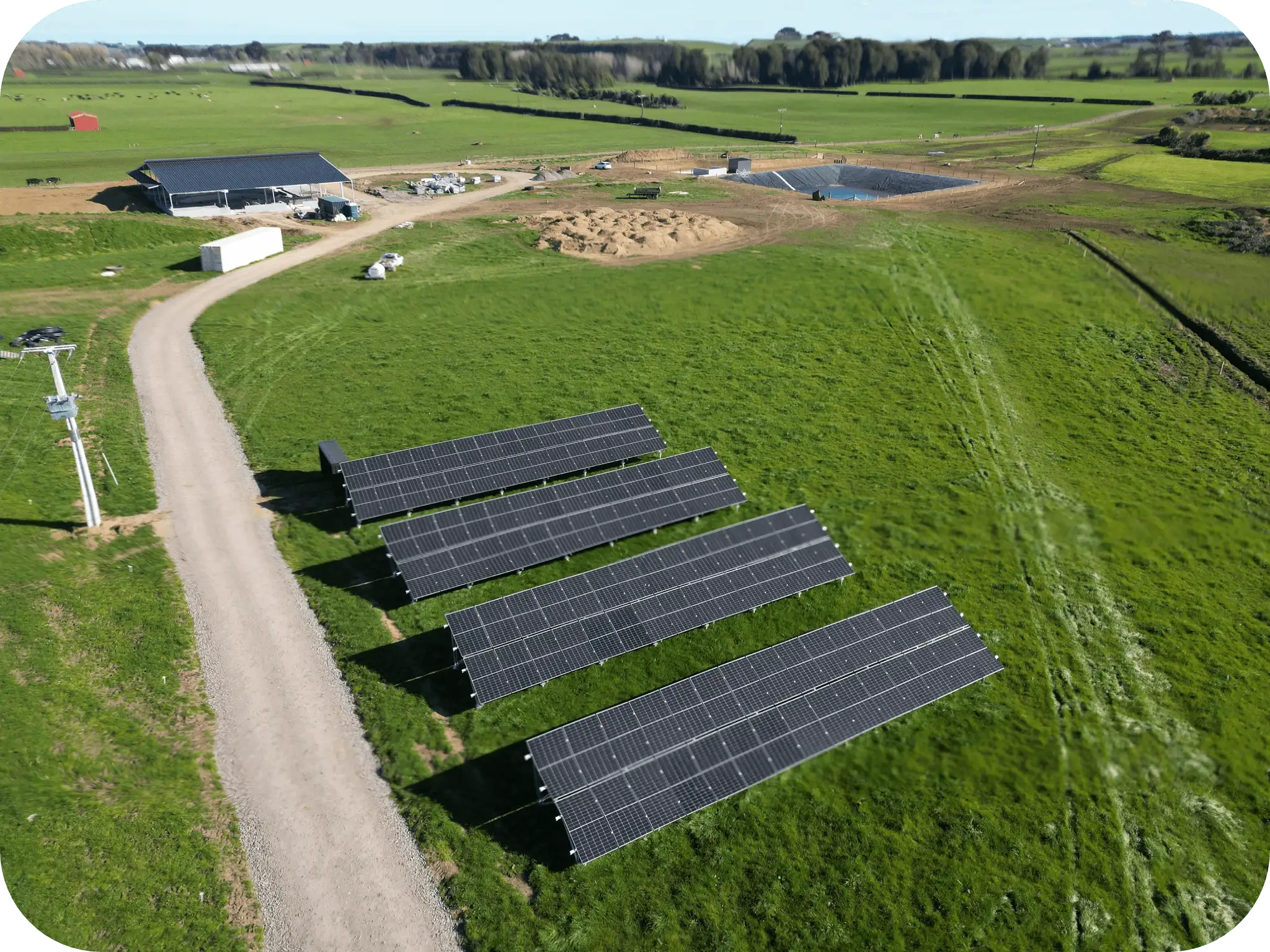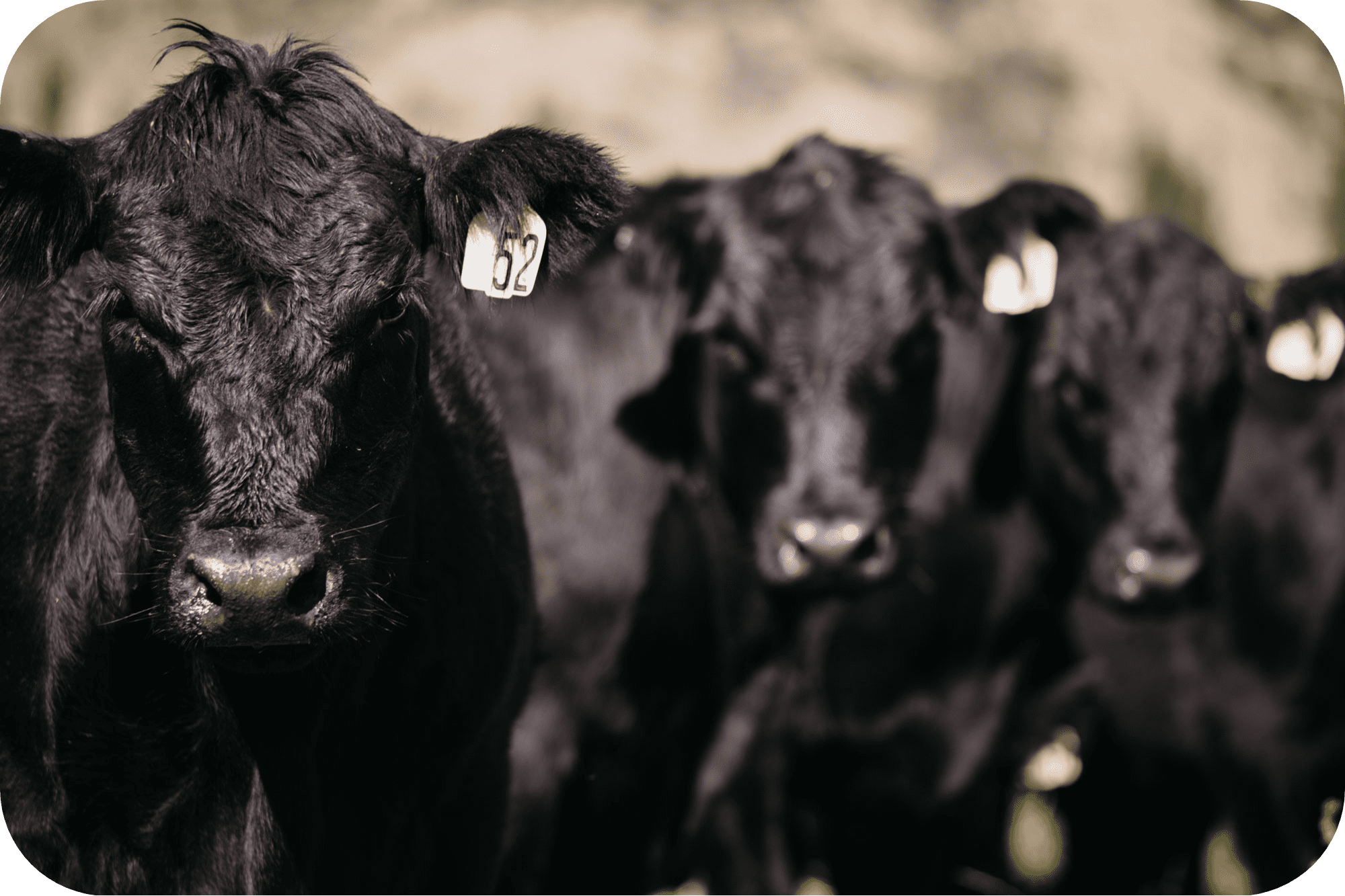Jan 2026
Specialised Industrial Solutions (SIS) are committed to providing premium dairy shed generators to dairy farmers across the country.
Our knowledgeable staff are ready to help you with a solution specific to your shed application, whether herringbone or rotary.
Keypower standby generators are made in China to meet New Zealand specifications and are competitively priced. They are primarily diesel-powered, available in various power outputs: from small single-phase units to large three-phase models.
Solar energy can fulfill all the electricity requirements in your milking shed, encompassing lighting, heating water cylinders, and refrigeration. Additionally, a solar installation proves beneficial for remote applications, such as operating water pumps for field irrigation and electric fences for break fencing. You can also utilize solar power to supply energy for your home and farm staff housing.
Strongbuilt Homes, established in 2022, is a Northland-based company specialising in the construction of high-quality, transportable homes and cabins. As licensed building practitioners and members of the New Zealand Certified Builders Association, we are dedicated to providing affordable, well-crafted homes.
Concrete Si-lution is a European inspired concrete silage bunker that has been designed and adapted to meet the Kiwi market and improve silage storage in New Zealand. Martin Sneek was a long-term herd owning sharemilker based with his family near Rangiora, in North Canterbury. Like most dairy farmers, making silage is a significant part of the spring workload. Martin wanted a sustainable and streamlined solution for his own daily operations, and he wanted it done right.
Farm Ute leasing serves as a valuable financial tool that empowers farms and businesses, particularly those in the agricultural sector, to acquire essential farm vehicles without the substantial upfront costs often associated with outright purchases.
Through this arrangement, the lease company retains ownership of the vehicle while you, as the lessee, pay a predetermined monthly rental fee that allows you to use the vehicle as needed.
Every year, around 5000 people leave the dairy sector, according to DairyNZ research. While turnover rates are similar across the primary industries, dairy sits higher than some of New Zealand’s top-performing sectors. Staff turnover comes at a cost, not just in dollars but also in time, productivity and team culture. Once recruitment, training, lost time and reduced productivity are considered, replacing a team member can cost anywhere from 30% to more than 100% of their salary.
At M & M Engineering Ltd, the home of Razorback decks, we believe in one simple principle: build it once – build is right. Since 2011 we’ve been designing and building what we, and our customers, believe to be the strongest ute deck in NZ.
Born from one man’s passion to transform both old and new utes, and refined through the years of customer feedback, Razorback Decks are built tough to meet the demands of real kiwi people.
Are you interested in taking advantage of a complimentary farm visit from a highly knowledgeable solar power expert to discuss the various options available to you? Our team of solar installers boasts extensive experience in the successful installation of solar power systems tailored specifically for farms and lifestyle blocks.
To get started, simply fill out the form provided, and our local solar installer will reach out to you promptly with a phone call to explore your unique options in detail.
This is a great opportunity to learn how solar energy can benefit your agricultural operations or rural living, and we look forward to assisting you in making an informed decision that aligns with your needs and goals.
New Zealand’s pasture-based dairy systems are complex and dynamic, with many interacting parts. Focusing too much on one aspect can create risks if it compromises others. Milk processor incentives have increased interest in emissions intensity – the emissions per unit of product, such as per kilogram of milksolids, or fat and protein-corrected milk. This has raised questions about how farmers can reduce their emissions intensity and whether doing so might have unintended impacts.
We’ve been solving storage challenges by delivering top-quality shipping containers to hundreds of Kiwi Farms and businesses for years. With local branches in key locations throughout the country and strong partnerships with Aotearoa’s best transport providers, we deliver shipping container solutions where you need them, fast.
The historical introduction of Angus cattle to New Zealand can be traced back to the year 1863, marking the beginning of their journey in this new land. Since the 1960s, there has been a concerted effort to selectively breed these animals to enhance their desirable traits, resulting in Angus cattle that are now taller, longer, and larger when compared to their original Scottish counterparts. This evolution demonstrates the adaptability and versatility of the breed to changing environmental and commercial demands.
The DairyNZ team is continuing to explore the potential of digital technology to support animal wellbeing and the overall health of farm systems. As farms generate more data than ever before, the challenge is figuring out how to use it effectively and unlock its potential. Meanwhile, interest from customers and consumers worldwide is growing, particularly in how their food is produced and the quality of life of the animals involved.
New Zealand’s pasture-based dairy systems are complex and dynamic, with many interacting parts. Focusing too much on one aspect can create risks if it compromises others. Milk processor incentives have increased interest in emissions intensity – the emissions per unit of product, such as per kilogram of milksolids, or fat and protein-corrected milk. The challenge is finding the balance — reducing emissions intensity while still achieving good overall farm performance
Misty morning fog sat low amongst the rugged Taumarunui hills as competitors converged from all over the island, but as the 11 pairs settled into their work, the cloud and mercury began to climb, and the lads were treated to a cracker day.
This event has become a favourite amongst regular competitors, not so much for the near 30-degree temperature it often takes place in, but for the light pumice digging, old-school A&P Show atmosphere, and the supportive environment headed by local NZFC organisers Wayne & Kathy Newdick, who are in their 19th year running this competition.
Fonterra Co-operative Group Limited has today announced that the dispute with Bega Cheese Limited in relation to the Bega licences has been resolved. Bega agrees that the structure of the sale to Lactalis of Fonterra’s global Consumer and associated businesses does not constitute a change of control under the Bega licences.
